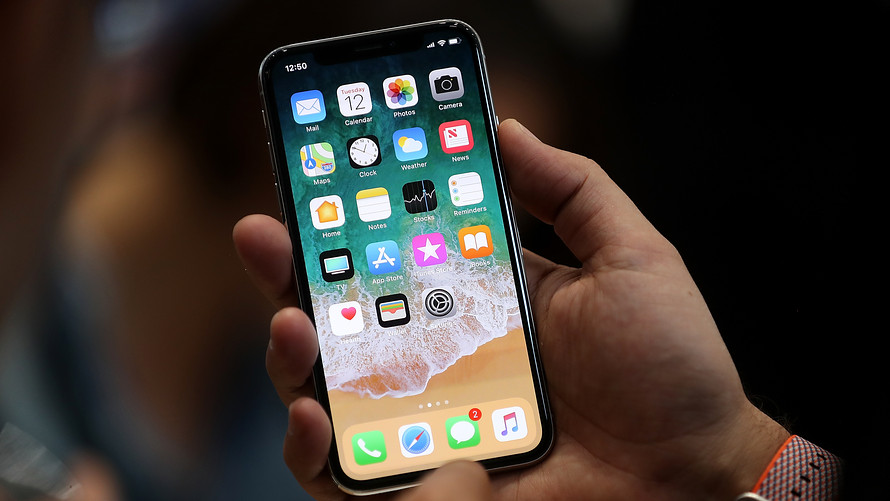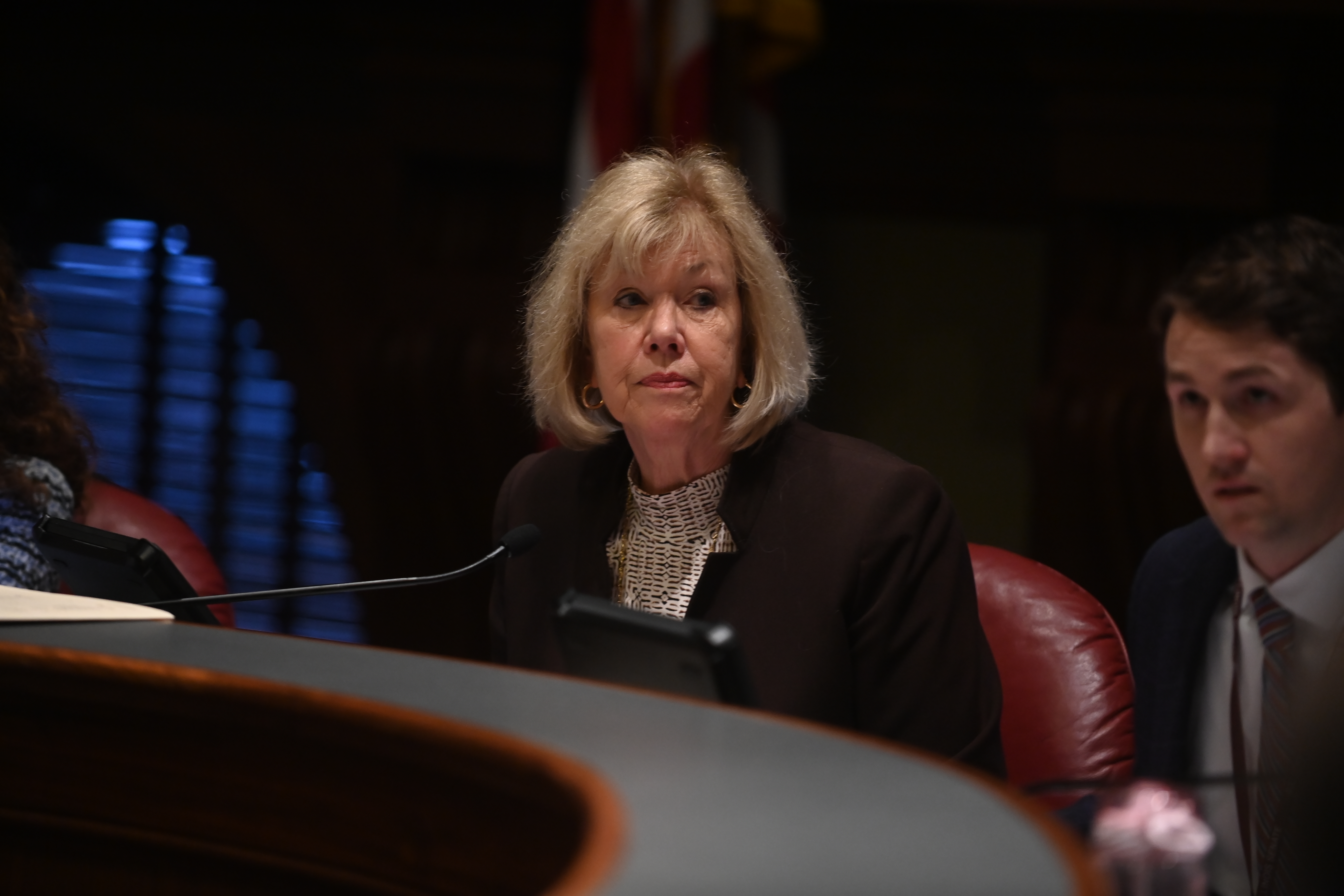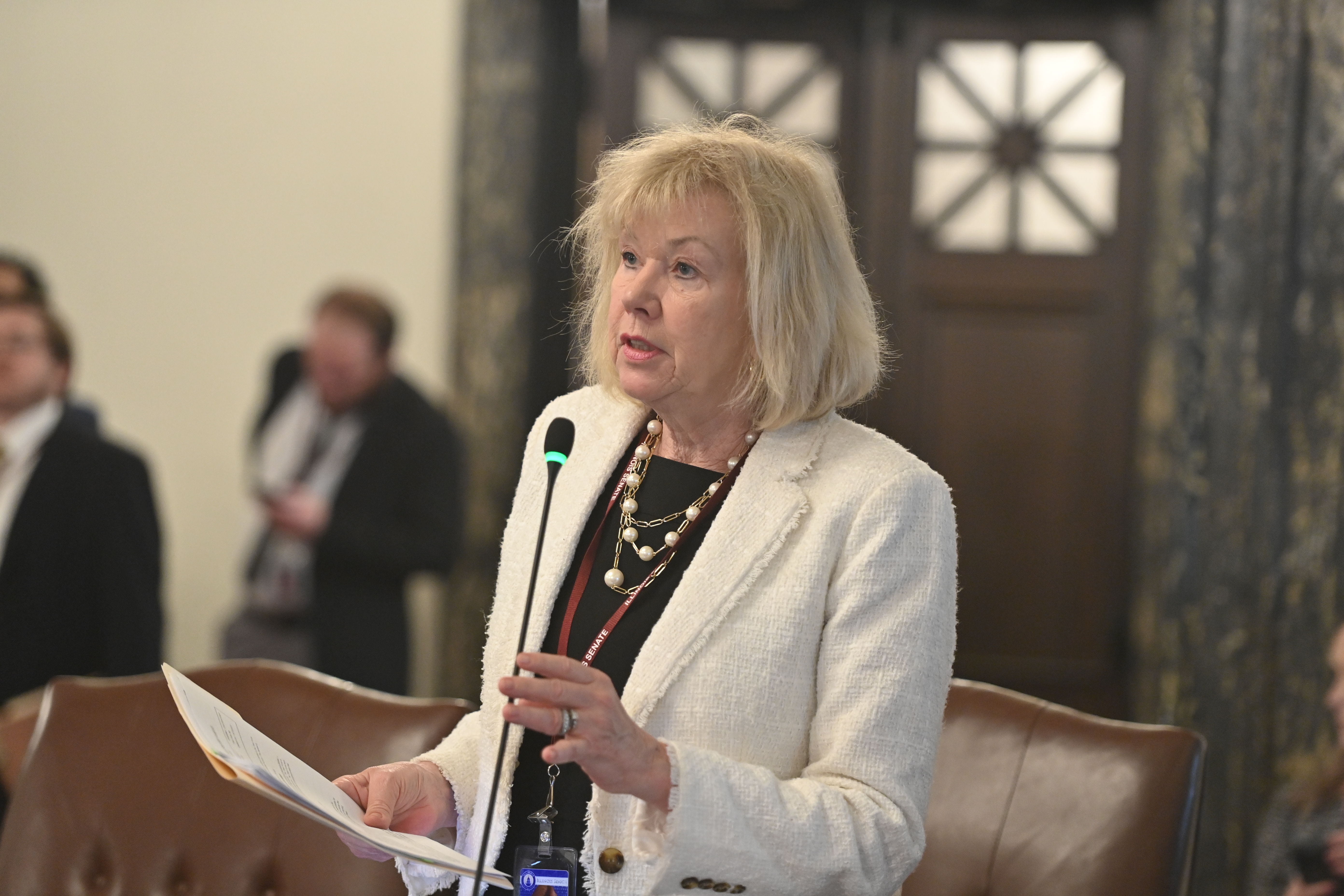- Details
- Category: Uncategorised
SPRINGFIELD – A longstanding champion of gun safety legislation – and advocate for survivors of domestic violence – State Senator Julie Morrison proudly supported a measure to ensure people with domestic violence-related restraining orders may have their firearms revoked in an appropriate amount of time.
“Karina's Law focuses on a critical, shared goal: preventing those who pose a threat from accessing firearms, while strengthening coordination between law enforcement and advocacy groups to protect domestic violence survivors,” said Morrison (D-Lake Forest). “Protection orders must serve their intended purpose by ensuring those who pose a threat are promptly disarmed.”
House Bill 4144 – also known as Karina's Law– would strengthen firearm removal requirements when domestic violence protection orders are issued. Law enforcement agencies would be required to remove firearms from individuals due to emergency restraining orders within 96 hours of a judge’s order.
This new policy provides clear guidelines for enforcement, ensuring consistent application across the state and addressing the risks associated with firearms and domestic violence situations. The legislation follows the July 2023 deaths of Karina Gonzalez and her teenage daughter Daniela, who were allegedly killed by Gonzalez's husband shortly after obtaining a protection order against him. Under that order, no steps were taken to make sure he gave up his guns.
In domestic violence cases, a gun in the home increases the risk of homicide by 500%, according to a report from The Network – an organization advocating against domestic violence.
“Research shows domestic violence situations involving firearms present severe and potentially lethal risks to survivors,” said Morrison. “The system has long failed women in Illinois, and I am proud we stepped up to protect future survivors.”
House Bill 4144 passed the Senate Monday.
- Details
- Category: Uncategorised

SPRINGFIELD – State Senator Julie Morrison’s newly signed law outlines training on how to access the medical ID function within health apps on cellphones.
“Digital medical IDs are a good way to make sure people receive personalized care,” said Morrison (D-Lake Forest). “This law will help first responders use technology to save lives.”
The vast majority of cell phones have a built-in health app where a user can enter pertinent information to help emergency response services in the event the user is unresponsive or otherwise unable to report healthcare needs during a medical emergency. Morrison’s law will outline training to teach EMS personnel and law enforcement how to find this information on a person’s phone.
Utilizing a patient’s health app will ensure EMS personnel are aware if individuals are allergic to certain foods or medications, or if they are taking medication that may interact with another drug or medical treatment.
“Taking preemptive measures to improve the health and safety of our community is a legislative priority,” said Morrison. “To make the most of this law going into effect, I urge you to update your medical information in your phone’s health app.”
Senate Bill 3116 was signed into law Friday and takes effect Jan. 1, 2025.
- Details
- Category: Uncategorised

SPRINGFIELD – Nicotine companies are creating vapes that are designed to look like school supplies and therefore are easily concealed, leading State Senator Julie Morrison to pass a law to prevent these products from being advertised to children.
“With more high school students using vapes today than cigarettes 10 years ago, youth e-cigarette use is a public health threat,” said Morrison (D-Lake Forest). “This law will prohibit tobacco companies from pulling the wool over the eyes of educators and guardians whose job it is to keep kids safe.”
Educators have complained to the Illinois Department of Healthcare and Family Services about finding electronic cigarettes on school property that are designed to look like school supplies such as highlighters, erasers and pencil sharpeners. Senate Bill 2662 will prohibit the advertising, marketing or promoting of an electronic cigarette in a manner that is likely to cause a person to mistake it for an object that is anything other than what it is, a tobacco product.
“As chair of the Senate Health and Human Services Committee, I have taken a strong stand on the issue of nicotine use,” said Morrison. “This law will protect our children from creating a habit that can have harmful long term effects.”
Senate Bill 2662 was signed into law Friday and takes effect Jan. 1.
- Details
- Category: Uncategorised
SPRINGFIELD – To ensure consistent quality of care for residents when their nursing home changes ownership, State Senator Julie Morrison championed a new law requiring facilities to develop comprehensive transition plans.
“Nursing home residents should always receive high-quality care, even during facility ownership transitions” said Morrison (D-Lake Forest). “This law requires transfer plans from current owners to new owners to ensure nothing gets over looked.”
Senate Bill 3115 will require owners of a facility to submit a transition plan detailing how resident care and appropriate staffing levels will be maintained throughout the process of shifting ownership.
According to the Illinois Department of Public Health, past changes of ownership have taken place without a clear and concise transfer plan that assures appropriate staffing and quality of care. This issue will be remedied by this new law by providing clear steps facilities must take during ownership changes.
“Medical staff have been at dangerously low levels during past transitions,” said Morrison. “The responsibilities of making sure a nursing home facility is properly staffed and that residents are taken care of does not go away just because of a change in ownership.”
Senate Bill 3115 was signed into law Friday and takes effect Jan. 1, 2025.
More Articles …
Page 1 of 13







